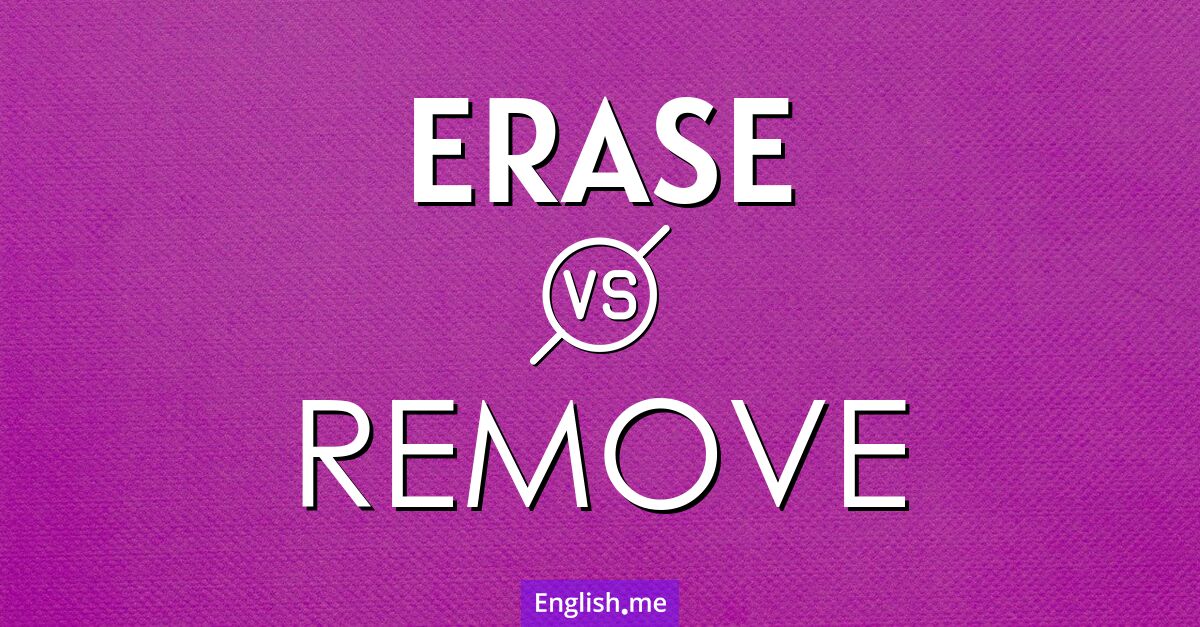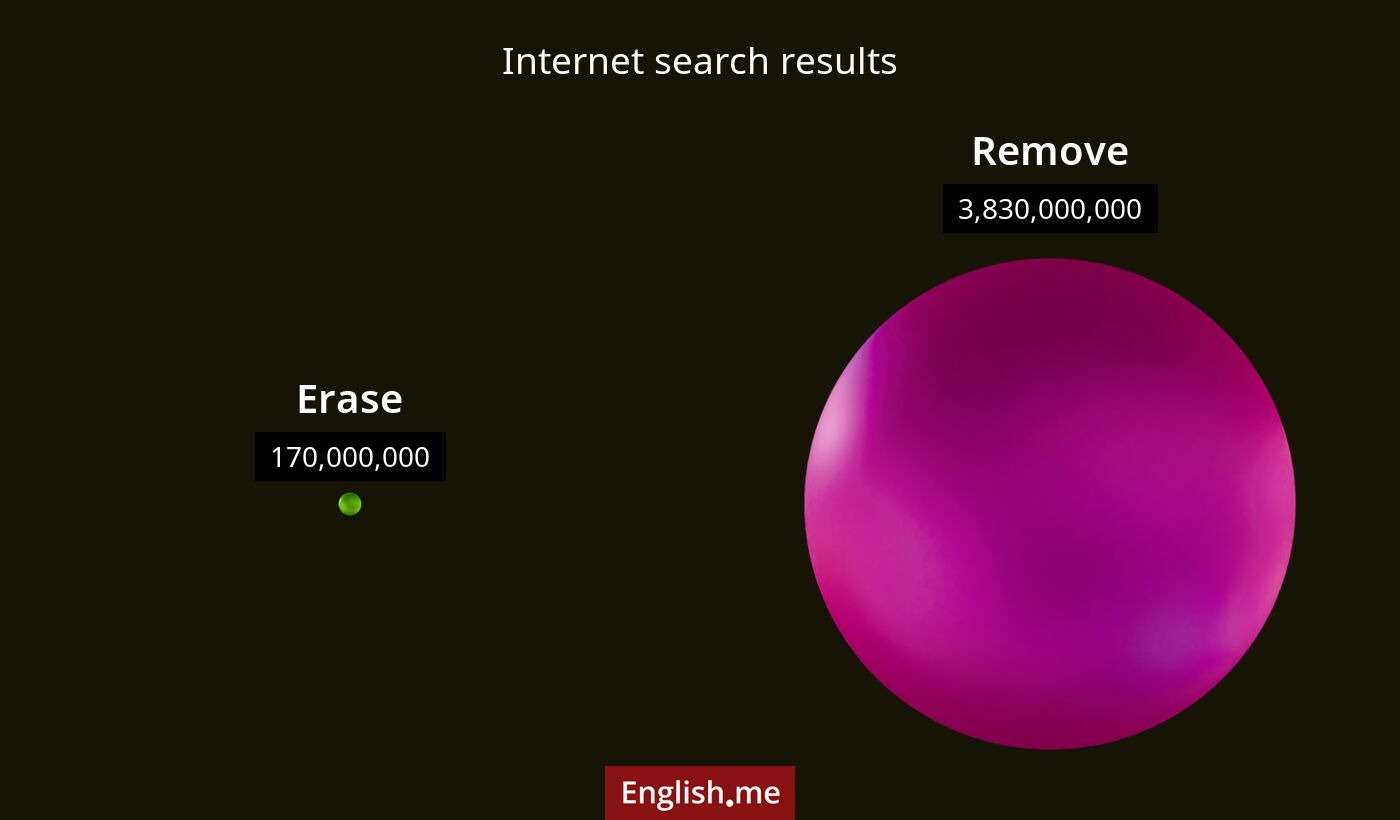"Erase" vs. "remove": the art of disappearance in language
Reviewed and edited by  Anwar Kareem 06/10/2024, 13:45
Anwar Kareem 06/10/2024, 13:45
English.me team member

 What is similar?
What is similar?
Both "erase" and "remove" refer to the act of taking something away or getting rid of something.
 What is different?
What is different?
Erase typically refers to rubbing out marks, such as pencil or chalk, or deleting information from memory or data storage. Remove is a broader term that applies to taking away or moving any object or element from its place or position.
 Which one is more common?
Which one is more common?

 Examples of usage
Examples of usage
Erase- I need to erase the pencil marks from the paper.
- The teacher asked the students to erase the board.
- She wants to erase all memories of that place.
- Please remove your shoes before entering the house.
- He removed the old software to install the new version.
- They will remove the fallen tree from the road.

 English
English español
español française
française italiano
italiano deutsche
deutsche 日本語
日本語 polski
polski česky
česky svenska
svenska Türkçe
Türkçe Nederlands
Nederlands